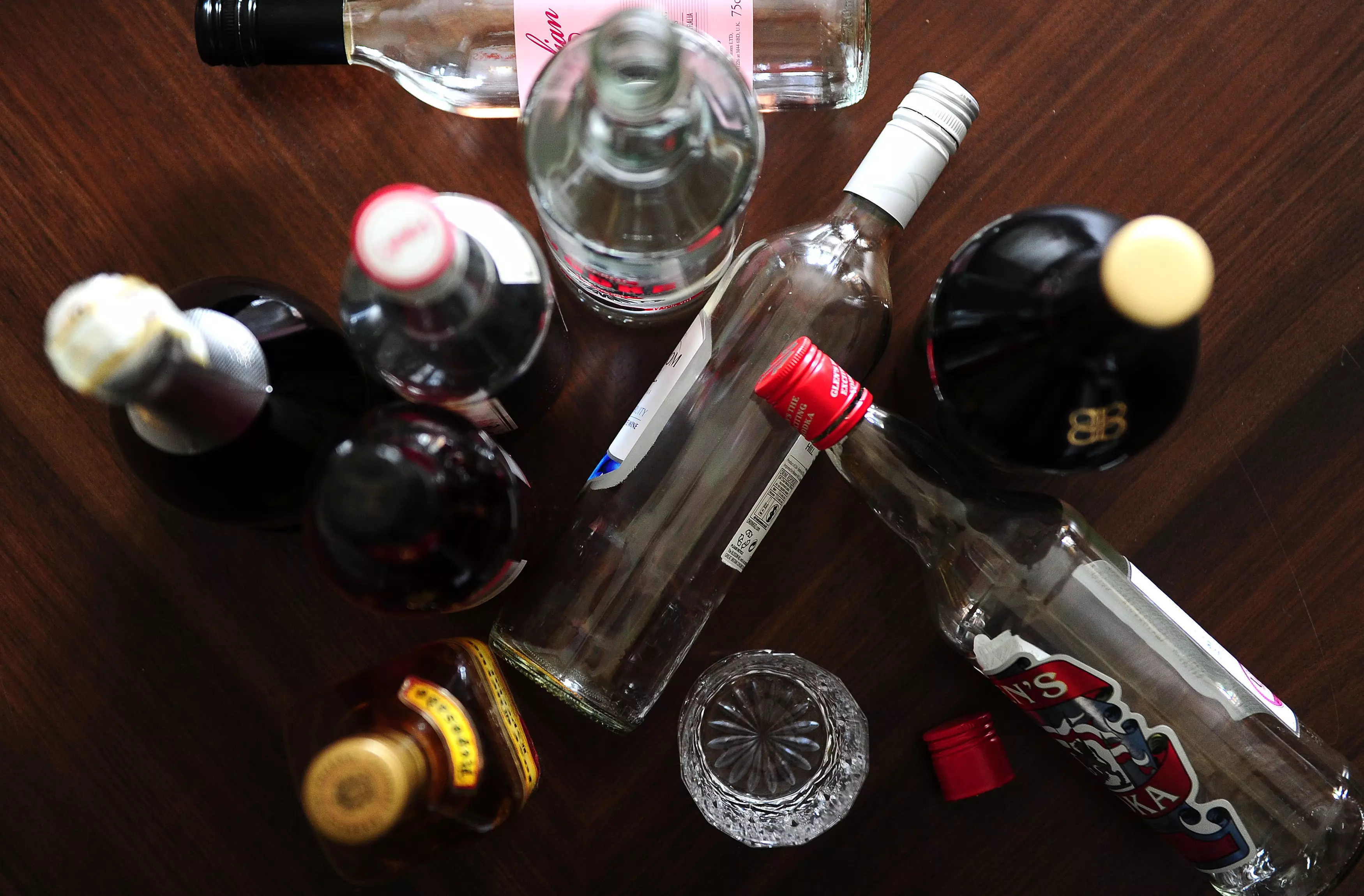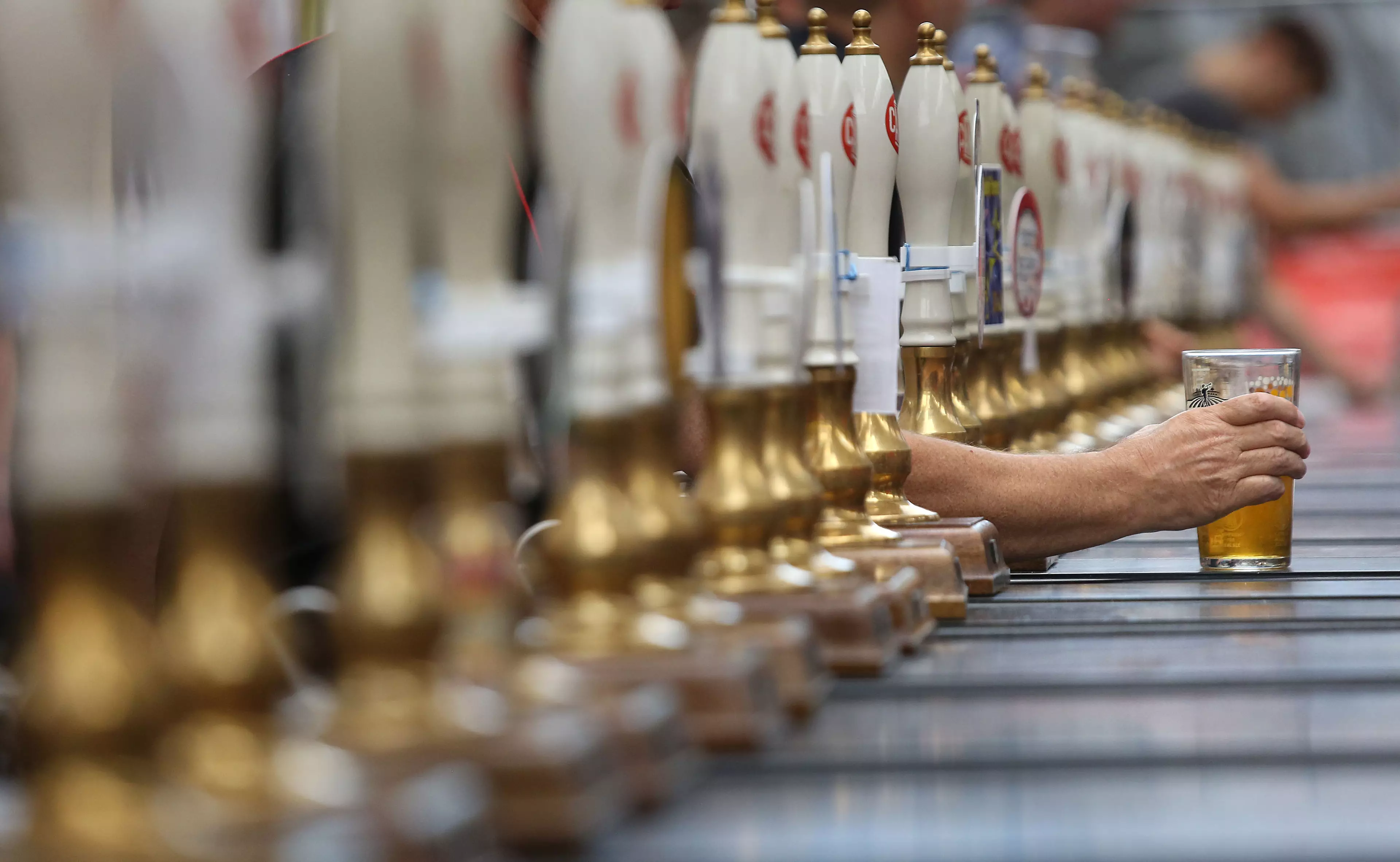
Alcoholism is not a choice. It never has been.
The addiction is borne out of drinkers believing that they are dependent on the substance, whether that be caused by mental health, surroundings, or a feeling of meaningless.
In 1994, Oasis released their fourth single, Cigarettes and Alcohol, off their debut album 'Definitely Maybe'. Noel Gallagher, the songwriter, had been blasted for what was thought to be the glorification of smoking and drinking.
Advert
In an interview he denied these claims, saying: "It's not glorifying drinking and smoking - it's the feeling you get when you're on the dole, you've got no money, hoping to escape from your surroundings, and maybe all you have is cigarettes and alcohol, and that's all that matters."
While the melancholy feeling of dependency on drink is hidden by heavy drums and a distinctly ripped off T-Rex guitar riff, the meaning remains - people are pushed to certain points in their life where they believe they need drink to get by

Credit: PA
Advert
We are currently in the middle of Alcohol Awareness Week and the importance should not be underestimated. Alcoholism in young adults is at a high, with American Psychiatric Association's Diagnostic and Statistical Manual of Mental Disorders stating that the dependence comes from factors such as increased tolerance, withdrawal symptoms when alcohol is not used, unsuccessful efforts to cut down on alcohol use, and interference with everyday life, with approximately nine percent of people aged 18-25 dependent.
This isn't a joke, nor is it a choice, and it certainly isn't an excuse to depict someone or yourself as Berty Big Bollocks just because alcohol is drank not only on a daily basis, but drank in large amounts on a daily basis.
Anxiety and depression can lead to indulgence in alcohol, as alcohol can also lead to mental health disorders. Dual Diagnosis reported that 38 percent of the consumption of alcohol comes from mental health disorders.
In Britain, young adults with depression are twice as likely to be heavy or problem drinkers, according to Drink Aware, due to the illusion that alcohol helps relieve the disorder.
Advert
Similarly, research has found that regular drinking lowers the levels of serotonin in your brain, which is a chemical that helps to regulate your mood. The lack of this chemistry in the brain leads to the increased risk of depression. Because of this feeling, you begin to think that increasing the alcohol intake will relieve the depression. It's a vicious cycle.
I'm not going to sit here and pretend that after a bad day, whether it be in work, or just in general, I haven't simply bypassed the fantasy of drinking a smooth, cold pint and just skipped to the hope of drowning my liver to help relieve the pain of a terrible day.
Thankfully, for me, this isn't a constant case, but it is for sufferers of alcoholism, or alcohol use disorder (AUD). Again, as stated earlier, alcoholism isn't a choice, it's sometimes an unavoidable problem.

Credit: PA
Advert
You may think that it's brought on by the people who suffer from it, but a study on Recovery on Purpose found that certain childhood personalities can actually predict alcohol abuse in young adults.
This, paired with the fact that mental health disorders can lead to AUD, means that those that suffer from it are living life with a disease.
As we know, as lads, we are far too proud to speak about disorders. Due to social pressures, fear of embarrassment or shame, talking about the likes of mental health, or things relating to it, is tough.
It's important to realise that it is okay to talk about. Equally, if you think a friend may be suffering from alcoholism, it's okay to talk to them, or to help them seek help.
Advert
This means you should be clued up on the symptoms. If you, or someone you know feels guilty or ashamed about drinking, lies in order to hide drinking habits, has people close to them worried about their drinking, need a drink in order to relax or feel better, black out or forget what happened while drinking, or regularly drinks more than intended to, then it might be time to seek help.
There are always places that can help.
Never suffer in silence.
Featured image credit: PA